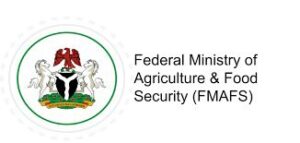Agricultural Strategies Nigeria must adopt after COVID-19

Bisi Iyaniwura
Agriculture sector has been the mainstay of the economy since independence and despite several challenges; it remains a resilient sustainer of the population said, Mr. Bisi Iyaniwura, a Lawyer and Agriculture specialist this excepts as a guest speaker on WebTV Economy and Politics Programme.
According to Iyaniwura, agriculture is a major driver of industrial growth through a series of strategic value chains. He noted that weak domestic value connections have resulted in a situation where Nigeria still imports something as basic as Ethanol. The Agric expert observed that ethanol is produced from cassava and maize with Nigeria as the largest producer of cassava in the world with over 100 metrics tonnes of cassava produced annually but Nigeria imports ethanol worth over $2b and also imports palm oil from Malaysia.
Speaking on what we need to do after COVID-19, he said the first thing we need to know is that it is not the population in agriculture that makes agricultural policies successful but the efficiency and management of the sector.
According to the Agric specialist, the Nigerian government has turned agriculture into a dumping ground for the unemployed and underemployed. He said, Nigeria is still one of the highest cost production countries in the world in terms of agricultural output.
Speaking on why Nigeria has a high cost of production, Iyaniwura explained that inefficient machine use raised production cost and break-even margins, he also noted that the country was not adopting efficient post-harvest handling and logistics as would be required in an efficient local value chain.
Sharing his thoughts on ways the Nigerian government can address the problem facing the agricultural sector, Iyaniwura called on government to address logistic issues and post-harvest waste. He was of the view that Kenya, and Rwanda are the agricultural produce export flowers of the continent while Nigeria still struggles to cope with poor security and the disruption of its agricultural supply chain.
Iyaniwura said, there is a lot of wastage on farms and government support is inadequate.
According to him, the cooperative system is the bedrock on which agriculture survives across the world. “Where there is a cooperative system the government can give support to warehousing on farms, and also the government can give non-cash incentives for farmers and give vouchers to buy agricultural equipment”. He concluded that in terms of storage, Agro processing is very critical and Ware housing.
Speaking on what the ministry of trade and investment need to do , he said it is the duty of trade and investment to handle post-harvest agricultural wages and government should look at how Agric implements can be fabricated locally.
Iyaniwura in discussing his perspectives on a revised outlook for the agricultural sector in the country, noted that the nation needs to become more serious in dimensioning the expectations from the agriculture sector by clearly stating what the sector would be expected to do.
He concluded that the country must take agriculture seriously, and noted that the sector was not a dumping ground, it was a real business which can be used to reset the economy if handle appropriately. The sector properly handled could address the poverty problem.








